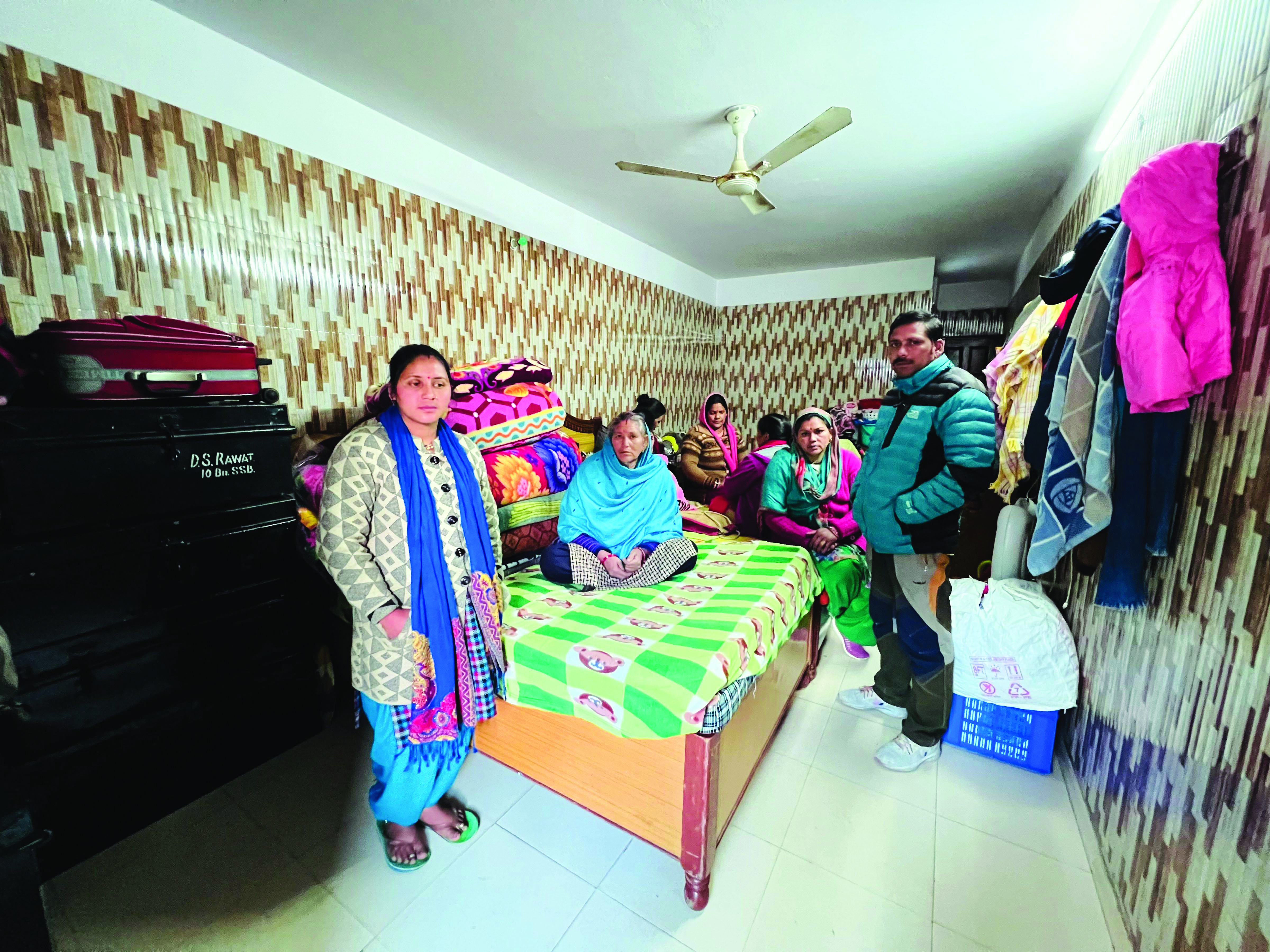Joshimath sinking: Mental health issues add to trauma of displaced

New Delhi: Insomnia, anxiety, depression and crippling uncertainty about the future. As days pass into weeks and the cracks in their town widen and deepen, hundreds of people displaced by land subsidence in Joshimath and forced into relief camps are battling a range of mental health problems, say residents and experts.
With no end in sight to the crisis, hundreds of others in Uttarakhand’s fragile mountain town still lucky enough to be at home are frantic with worry about when not if they too will have to move into government-run shelters, hotels or just leave town.
“The land subsidence event last month has had an impact on everyone. The major symptoms among affected people are insomnia and anxiety,” Dr Jyotsana Naithwal, a psychiatrist from AIIMS Rishikesh deployed at the community health centre (CHC) in Joshimath said. She is part of the team of three trained psychiatrists and one clinical psychologist deployed in the town of over 20,000 people to help people battle mental trauma. Naithwal’s own home in Singhdhar area has developed cracks and she has been living in a hotel with her family.
Studies have found natural tragedies such as landslides, earthquakes and floods are traumatic and may result in a wide range of mental health problems, including depression, anxiety disorders, and post-traumatic stress disorder. Effective screening and awareness programmes among survivors should be strengthened for the prevention and treatment of psychiatric morbidity among the survivors of landslides, said experts.
“We had been warning that an epidemic of mental health is on its way. Many people our volunteers have been in touch with are facing trauma and mental issues,” Sati said.
Being forced to part from their damaged homes and the fear that they may never be able to return to their childhood homes is leading to a spectrum of problems.
Ask 19-year-old Neha Saklani.
On February 3, just a month after Neha and her extended family of 14 people shifted to a hotel, her father got an anxious call that their house had been razed to the ground.
“All of us rushed to the spot and found it still intact. But the call only compounded the already anxious lives that we have been living ever since our house started developing cracks almost a year ago,” Neha said. The Saklani family said it was the first to report land subsidence in Joshimath when their house developed cracks in May last year. Neha’s mother recently underwent a surgical procedure at a local clinic, and the family doesn’t know how she can recuperate in their cramped hotel room.
Suraj Kapruwan had a laundry shop in Manohar Van, which was heavily damaged during the January 2 subsidence event. He said he hasn’t had a full night’s sleep since.
“I am depressed and hardly get any sleep at night. I keep thinking about my business on which I spent lakhs. There is no compensation still in sight. I don’t know how to cope with the situation,” 38-year-old hotel management graduate said.
Naithwal added that gauging the burden of mental illness is difficult as people don’t report symptoms unlike other health disorders and symptoms can surface anytime up to a year.
According to Sati, the situation will only get worse if the authorities don’t act faster and come up with a proper and prompt rehabilitation plan for the people of Joshimath.



